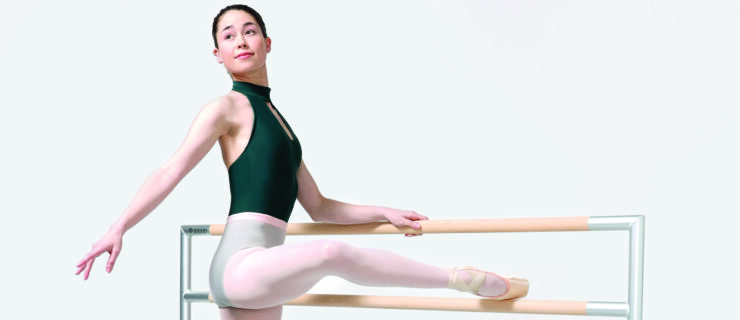How to Get Recommendation Letters That'll Land You in Your Dream Dance Program
Because they’re the one part of college applications you don’t do yourself, teacher recommendations can feel like big, scary question marks. As Sarah Langford, college counselor at The Chicago Academy for the Arts, says, “When admissions chooses between equally talented candidates, a memorable letter can put you in the ‘yes’ pile.” But take heart: You have more control over what ends up in these letters than you might realize. Here, Langford and Sarah Lovely, director of college counseling at Walnut Hill School for the Arts, spill the secrets to ensuring you’ll get letters that’ll help launch you into the dance department of your dreams.
Choose Wisely
Whether the application calls for academic or dance letters of recommendation (or both), you’ll want to keep the same principle in mind when choosing your recommender. “The quality of the student–teacher relationship is incredibly important,” Lovely says. “Who has written really good comments about you? Who have you engaged with outside of the studio? Who have you gone to for extra help?” The teacher who gave you an A might not have seen you take initiative, persevere, and ultimately grow when faced with challenges.
Think twice before asking a teacher from your freshman or sophomore year, which Langford says raises a red flag: “You were 14 and now you’re 17—hopefully a very different, improved learner.” And don’t make the mistake of choosing people based on job title or fame outside the school or studio. Ignore impulses to ask the department chair or studio owner, for example, if you’re not close—what’s important is the detail of the recommendation itself.
Ask Early, Ask Often
Ideally, ask recommenders late in the spring of your junior year. “Nowadays, there are so many early deadlines that teachers need the summer to write their recommendations,” Lovely explains. If that’s not possible, shoot for six weeks’ notice. Don’t ask for a letter of recommendation within two weeks of the deadline unless it’s an emergency. “It’s inconsiderate to give teachers less time than that, considering they’re writing letters for lots of students,” says Lovely.
Don’t be afraid to gently nudge your recommenders once or twice as the deadline approaches. “Respectfully remind them how important it is that your application be complete, and that you’re grateful for the difference their letter makes,” suggests Langford.
Paint a Picture
While you should never write a recommendation letter yourself, feel free to discuss anecdotes and personal qualities you’d like your recommender to highlight. “Talking about the rigor of dance is important,” says Langford. “The letter can show what it’s meant for you to dance every day and succeed academically.”
Other application components may be customized for a particular dance department, but recommendations shouldn’t mention a specific institution unless your recommender is an alum or has some other connection. “When I worked in admissions at NYU, the worst was a letter saying ‘This is why so-and-so would be a perfect fit at Columbia,’ ” says Lovely.
What If Your First-Choice Recommender Says No?
Have a good number of teachers in mind so you don’t take it personally if someone turns you down. “It’s not necessarily about you—it could be they don’t have time because of something in their personal life,” says Lovely. “Be happy they were honest enough to admit they’re not the best person for the job,” says Langford. A refusal enables you to find a recommender with meaningful things to say about you as a dancer and student.
A version of this story appeared in the September 2018 issue of
Dance Spirit with the title “Highly Recommended.”



